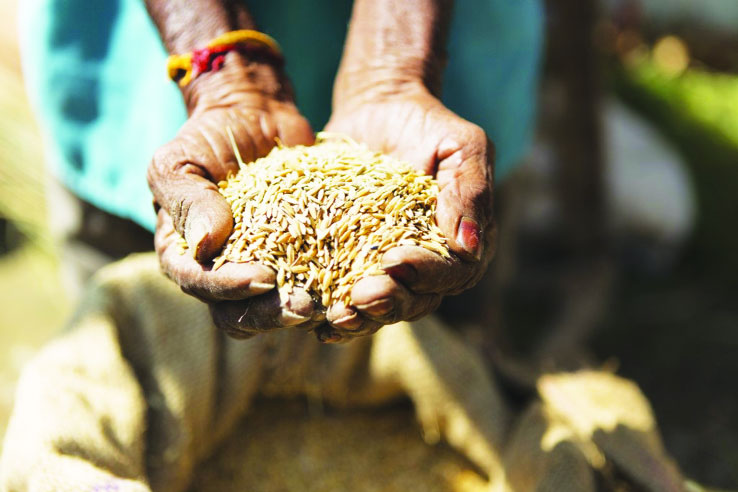The Centre has enough foodgrain reserves to feed the poor amid the nationwide lockdown to contain the spread of coronavirus.
According to official data, the Government currently has 58.49 million tonnes (MT) of foodgrains in the Food Corporation of India (FCI) godowns. Out of which, rice constitutes 30.97 million tonne and wheat 27.52 million tonne.
The foodgrain stock is much higher than the required norm of maintaining a reserve of about 21 million tonne as on April 1. The Government will supply over next three months additional 2 kg subsidised foodgrains under the PDS, taking the total monthly quota to 7 kg per person.
Sources said 58.49 million tonnes of grains can enable the distribution of a full year’s quota in advance to all ration card holders and beneficiaries of other welfare schemes. “Also, there is a stock of around 3 million metric tonnes of pulses, 1.1 million metric tonnes of oil seed and 4 million tonnes of sugar,†the sources said.
Further, wheat procurement is about to start soon. The Consumer Affair Ministry allowed FCI to sell food stocks to private markets under the Open Market Sale Scheme. Besides, the Government has asked fast moving consumers good firms to ramp up supplies to meet domestic demand.
“FCI godowns has sufficient reserves to meet the demand and officials are keeping a close watch on distribution of foodgrains,†Union Food and Consumer Affairs Minister Ram Vilas Paswan said in a tweet.
State-run Food Corporation of India (FCI), the Government’s nodal agency for procurement and distribution of foodgrains under the Public Distribution System, is keeping a close watch on supply of subsidised grains to the ration-card holders, he added.
Under the National Food Security Act (NFSA), the Government is supplying 5 kg of foodgrains per month to over 80 crore people at a highly subsidised price. Wheat is supplied at Rs 2/kg and rice at Rs 3/kg.
In 2018-19, around 57 million tonnes of wheat and rice was distributed in the country through the ration shops network. That included grain for schemes such as National Food Security Mission (NFSM), Mid-day Meal Scheme, Integrated Child Development Scheme (ICDS) and the Annapurna Yojana, apart from the needs of defence forces.
In the case of pulses, NAFED has stock of pulses at 3 million metric tonnes that can be immediately offloaded to markets. Except for red gram (arhar) that needs processing, all pulses varieties at NAFED are ready for distribution.
In the case of oilseed, one problem is that processing has to be quick, as they need to be converted into the edible form. This could mean some supply disruption. Even so, the oilseed stock with the Government is around 1.1 mt. Of this, 800,000 tonnes is groundnut seed and the rest is of mustard. Mustard seed’s conversion into oil is easier and quicker than groundnut’s.
The Centre allowed poor households applicable under public distribution scheme to lift six months of grains in one go. The move will not only ensure that ensure rural families have enough to survive but will also keep a check on price rise. India has enough grain stock to supply to its citizens for more than one year.



























